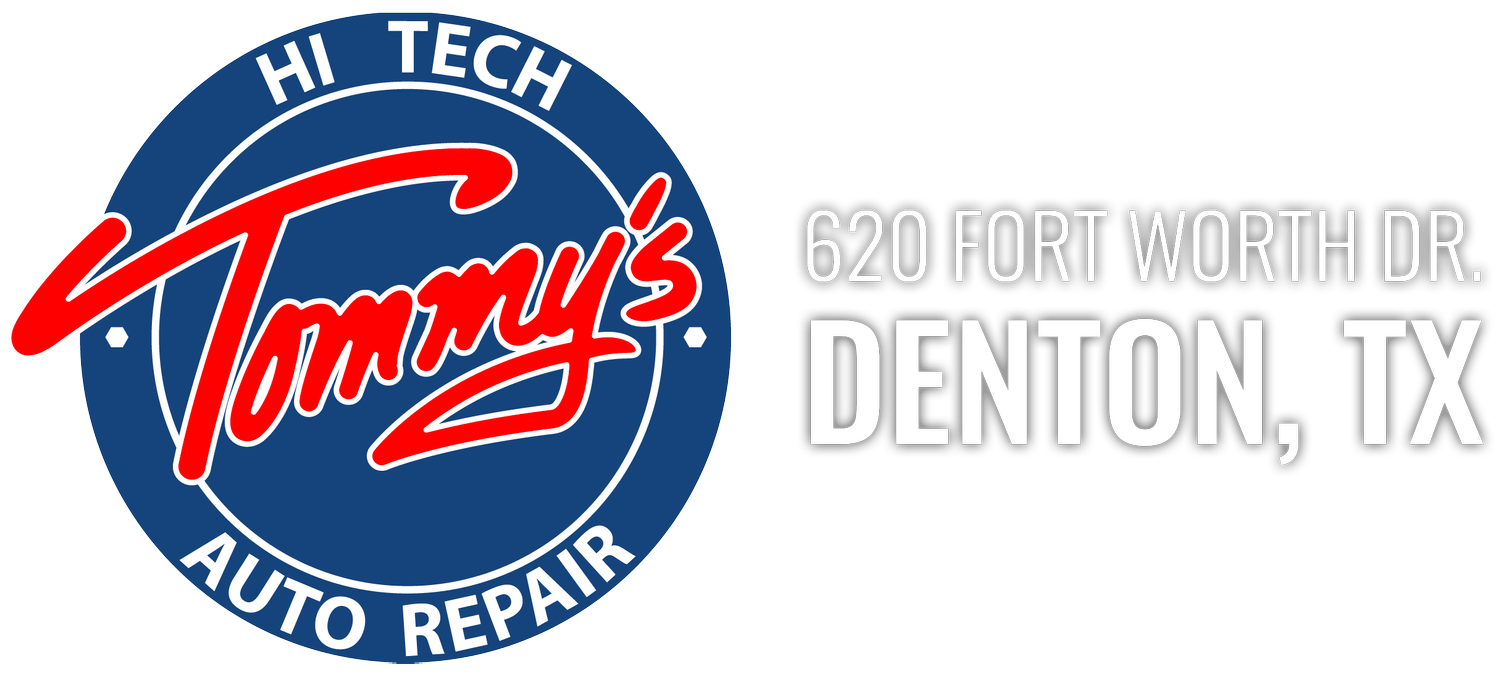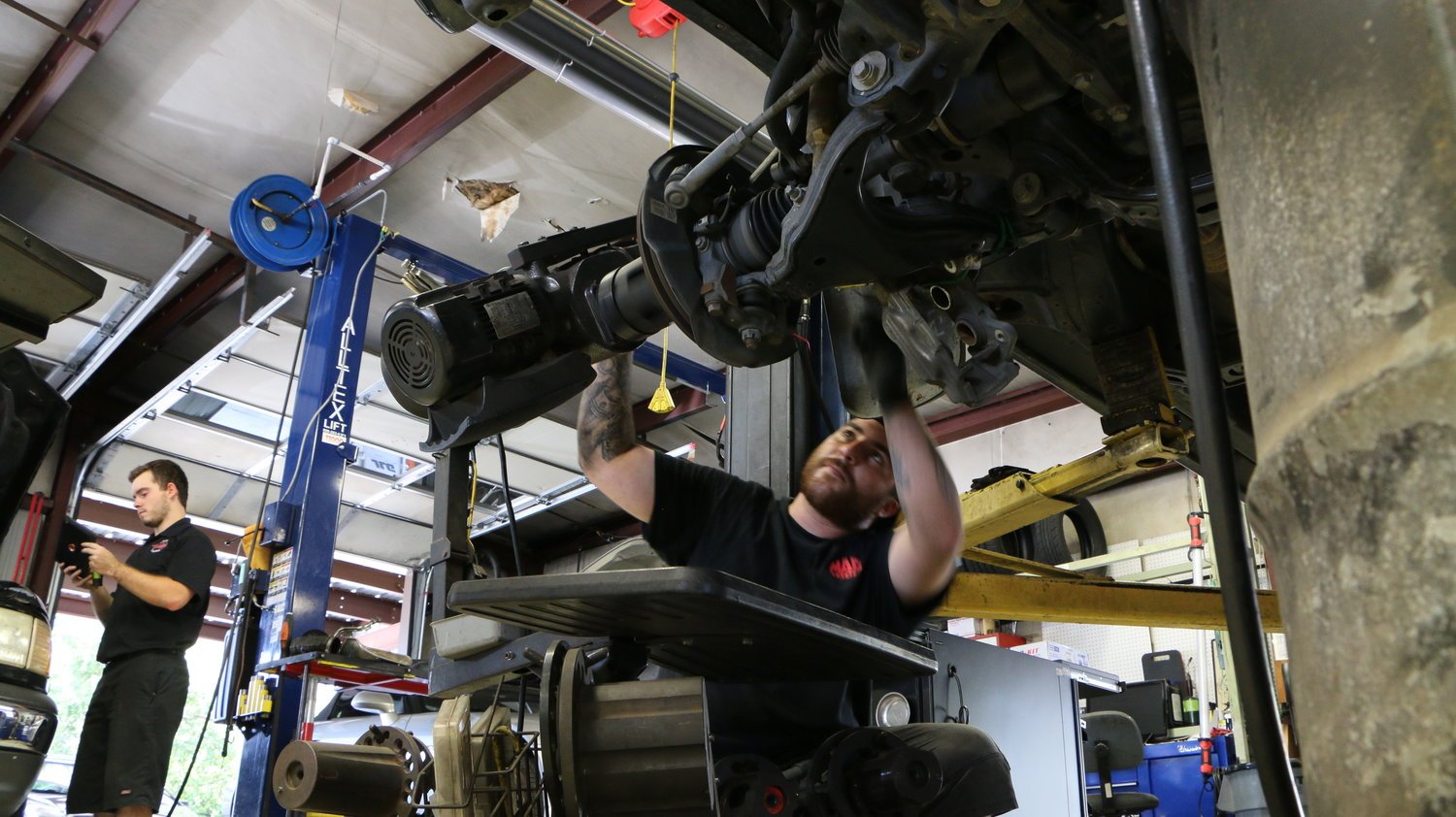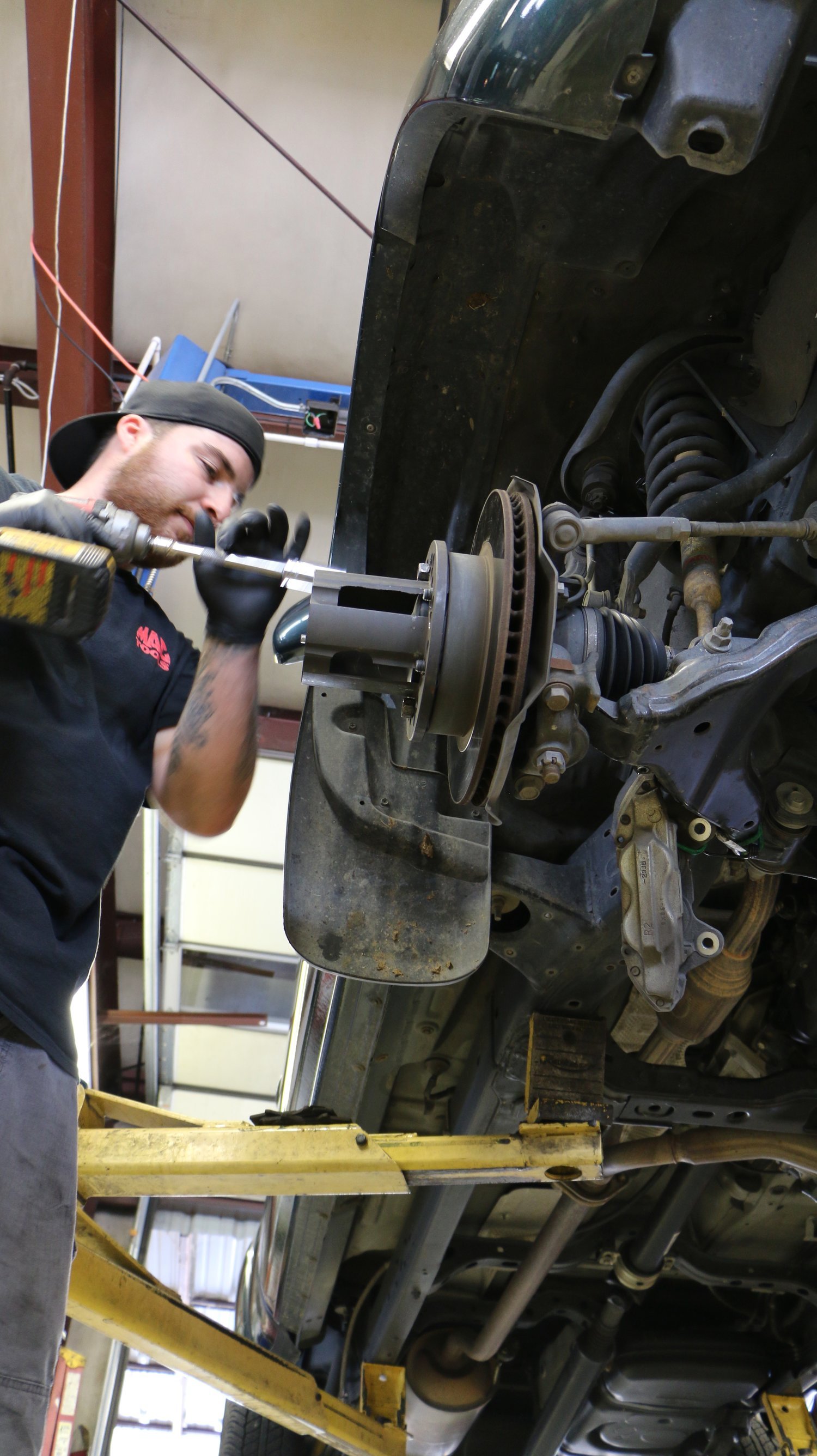The Top 5 Reasons Brakes Make Noise
Don't you hate that awkward moment when you pull up to a light and everyone is looking at you because your car is making a horrendous squealing noise? What in the world is that? I just had my brakes replaced, how could they be making noise?
We see five main reason why brakes make noise, and in most cases is caused by a poor install or poor pad quality. If you have any questions, please let us know. We offer a complimentary brake inspection. Below are the five main reasons we see every day we customers have brake noise issues.
1. Brake Pads Are Worn Out
The first being the brake pad lining material is worn out. Brake pads don’t last forever, and usually wear out in two years for front brakes, and four years for rear brakes. Did you know on the newer vehicles the rear brakes are used a lot for cornering, steering and handling! We actually see a lot of rear brakes wear out fast than the front because of this. Of course, all of this is depending on driving habits. Some brakes pads are designed to squeal when they get low. This is not as common as it used to be with the invention of brake pad wear sensors. If you’re getting a grinding noise you have most likely run the lining material down to zero, and the noise is the backing plate hitting the rotor and these need to be checked out immediately!
2. Rotor Surface is Uneven
The second common problem we see with brake noises is the rotor surface being uneven. This happens most commonly from wear. Towing heavy loads, or lots of braking can build up heat and “warp” the rotors. As the rotor goes around the brake pad can’t sit on the uneven surface completely, and can start making noise. We will usually recommend resurfacing or replace the rotors when this is an issue.
3. Brake Calipers Are Not Applying Pressure Evenly
Thirdly, brake calipers that have been sticking or missing hardware can cause the pressure applied by the calipers to not be applied evenly. When this happens, it will most likely wear out the brakes unevenly. If the hardware starts to stick, and won’t release, it will cause the brake pads to stick and cause noises, and poor braking. As brake calipers stick and do not slide properly, the brake pads will rub constantly and in turn build up heat and cause crystallization and squeal.
4. Brake Pad Material
The fourth thing we see is an issue with the brake pad material itself. When you buy anything these days, there is always a good, better, and best. The basic “good” brake pads are a cheaper material and tend to make a lot of noise. They will stop your car, but don’t expect to have smooth or quiet stopping power. This is one reason we do not use value brake pads. You get what you pay for.
5. Incorrect Installation
The fifth common issue we see is incorrect installation. Missing shims, caliper slides, brake hardware, or hardware not lubricated properly. Brake pads are not as easy to install as you once thought. When we remove the brakes the first thing we do is clean everything and polish the hardware. Remove any rust, road debris, and most important old and sticky lubricates. After the cleaning you need to re-apply good lubricate and install the shims and any other hardware that is replaceable. This will really ensure that the brake pad slides, brake shims, brake pins, brake hardware, is all moving evenly and properly. Shims are commonly ignored when brake pads are installed. However, shims are the main component to absorb the vibrations from the brakes. Vibrations in brakes will make noise.
“We offer a fantastic brake service. We can look over your car, provide an accurate estimate, and talk you through any questions at no cost to you. We want you to feel comfortable asking questions, and being an educated consumer. We hope this helps, and if you have any questions please let us know.”



